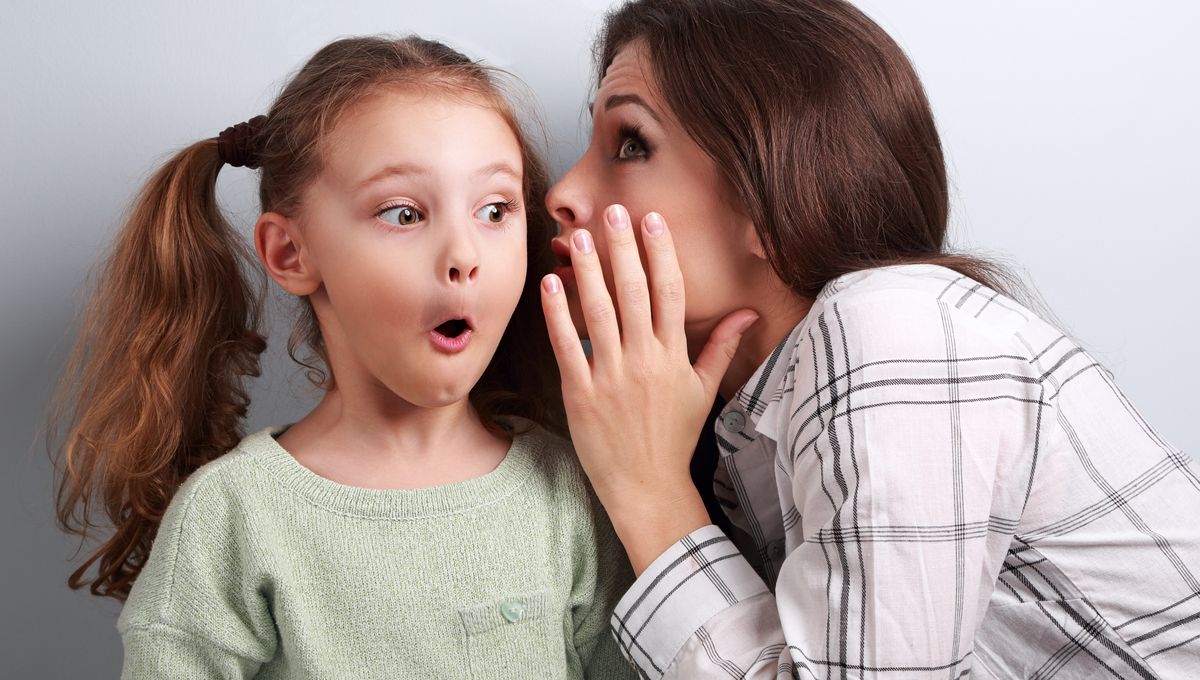
When interacting with children, adults modify their language depending on the gender of the child, and in fascinatingly consistent ways. That’s the finding of a new study from researchers at the University of Queensland, who wanted to try and bring some clarity to an area where previous research has produced conflicting findings.
“Two main factors motivated me to undertake this work,” lead author and PhD student Callyn Farrell told IFLScience. “Firstly, the mixed findings in the field. […] Secondly, although the developmental importance of talking about mental states and elaborated language is well accepted, no research had considered how adults use these language categories towards gender-diverse children.”
The adults who participated in the study included both parents and non-parents, over 450 people in total. They were shown a visual and written description of three 4-year-old kids: a girl, a boy, and a gender-neutral child. They were then given a scenario, such as building a sandcastle, and asked to select from four different responses to communicate with the hypothetical child.
There were two types of language embedded within the choices of response that the researchers were especially interested in: mental state language and elaborated language.
An example of a response that incorporated both of these linguistic forms is: “Sandcastles aren’t made to last forever, sometimes they fall apart. I can understand why you’re upset, I would be too, it took you such a long time to build it! But what do you think about rebuilding an even better sandcastle? I am thinking if we make it wide but not tall it might be stronger?”
Overall, there were some clear differences in the adults’ language choices depending on the gender of the child they were “talking” to. When interacting with girls, there was a stronger preference for detailed responses that included emotions and desires, as well as explanations for these mental states. When boys were the target, the participants used less emotional language, and when they were interacting with a gender-neutral child, the responses were more abrupt and offered less clarification.
As Farrell explained to IFLScience, this was a key result. “The standout finding is that in our studies, adults used less elaborated language when communicating with the gender-neutral child. This indicates the importance of considering diverse expressions of gender when studying aspects of child development.”
The researchers did not expect the responses of parents and non-parents to be so strikingly similar.
“What was most surprising is that adults who were parents and those who were not didn’t differ in their mental state language use towards the boy and their elaborated language use toward the gender-neutral child,” Farrell told IFLScience. “This indicates that the experience of being a parent may not be associated with our likelihood as adults to use these categories of language when speaking with children.”
Going forward, Farrell hopes to investigate further whether context affects language choices in gender-diverse children. “For example, in a STEM-based context, do we use more cognitive terms like ‘think’ with boys or more emotion terms like ‘feel’ with girls in a caregiving context?”
“However,” Farrell told IFLScience, “I think the most important future direction for this work is to understand how we use child-relevant language about mental states and elaborated language to gender-diverse children at home and within schools, for example. By doing so, we may increase awareness regarding the importance of these language categories and inspire adults to use them regardless of a child’s gender.”
“Suppose we want all children to develop in rich environments. In that case, we must understand how all children experience the social world, regardless of gender.”
The study is published in the journal Sex Roles.
Source Link: Adults Choose Their Words Differently When Talking To Kids Of Different Genders